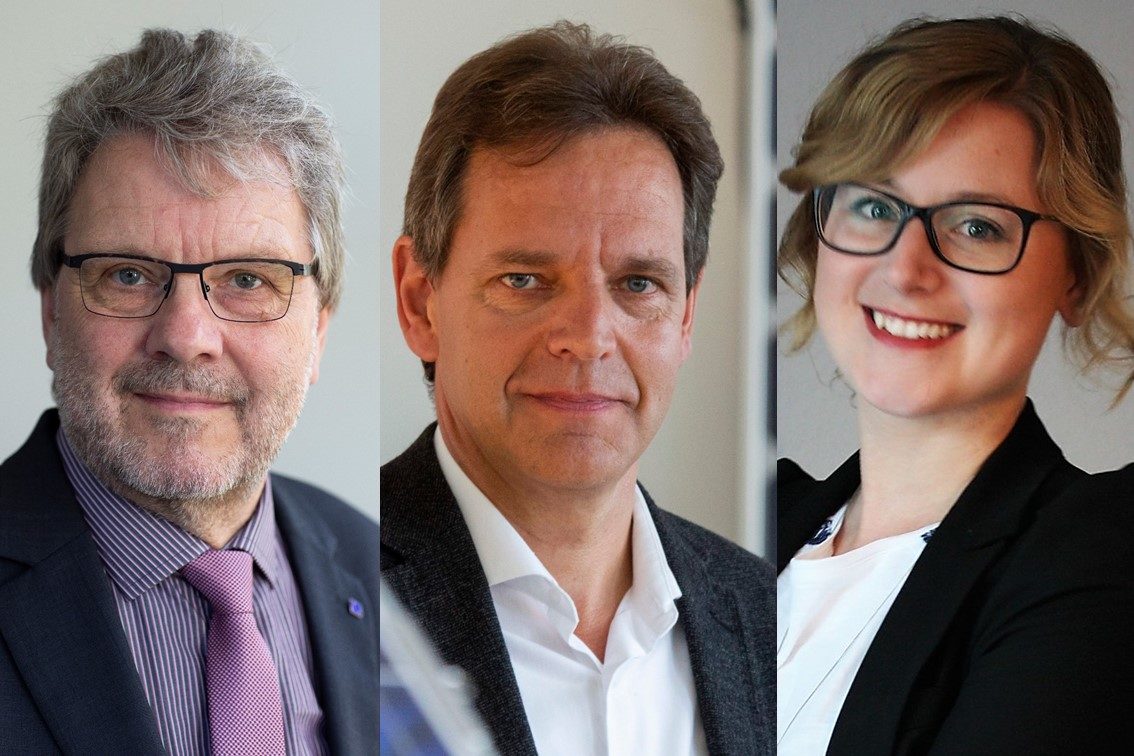Steinfurt (17 February 2022). With the International Engineering degree programme, engineering students gain international skills - and a double degree at Münster UAS and a partner university abroad. The Bachelor's programme with a new focus on Electrical Engineering will start at our faculty in the winter semester 2022/23. In this interview, Dean Prof. Dr. Reinhart Job, Prof. Dr. Konrad Mertens and Project Coordinator Lisa Feldkamp talk about the special features of the programme and the long-standing contact with South America.

What is special about the International Engineering - Electrical Engineering programme?
Lisa Feldkamp: The students who enrol at Münster UAS study electrical engineering on the Steinfurt Campus for the first four semesters in the regular way and are prepared for their stay abroad through additional language courses and seminars. We also organise regular meetings to network all "International Engineers" at an early stage. Students spend the fifth, sixth and seventh semesters abroad. This allows them to get to know their host country, the national language and the culture much more intensively than during a single semester abroad. After a total of three and a half years, students will have two university degrees in their pocket.
In which countries can students complete their semester abroad?
Prof. Dr. Reinhart Job: In the current pilot phase, we are working with our long-standing partner universities in Colombia, the Universidad Pontificia Bolivariana (UPB), and in Chile, the Universidad de Santiago de Chile (USACH). Our goal is to expand the programme to Europe in the near future. The Scandinavian countries, for example, which are very international and English-speaking, would be conceivable. We already have cooperation agreements with universities in Finland, Spain and France, which we would like to build on. So it's quite possible that in the winter semester of 2024/25, when the first FH students on the programme are scheduled to go abroad, there will be other host countries to choose from in addition to Chile and Colombia.
Are there comparable programmes at other universities in the region?
Lisa Feldkamp: The programme in its current form - i.e. with integrated engineering studies abroad in Latin America, a double degree and special subject and key qualifications - is unique in Germany.
Why Latin America, actually? What exchanges have there been so far between our department and the partner universities in Chile and Colombia?
Prof. Dr. Konrad Mertens: Our cooperation with the UPB in Medellín has existed for about 15 years. Before that, there had already been long-standing contacts between Münster University of Applied Sciences and Colombia through the German-Latin American Business Administration (CALA) programme. In 2009, our faculty then concluded a so-called framework agreement with the partner university to simplify the recognition of academic achievements in Bachelor's degree programmes. Since UPB didn't have a suitable computer science programme at the time, at first there was only an exchange in the electrical engineering programme, which Prof. Dr. Doris Danziger coordinated. I took over this task a few years ago. So far, 31 Colombian students have come to our department. With the new International Engineering programme, the offer should now also become more attractive for German students.
What career prospects does a degree in International Engineering open up?
Prof. Dr. Reinhart Job: Germany is an exporting country. It is therefore important that engineering graduates can move on the international stage. With our International Engineering programme, students grow up in two educational cultures and become important mediators in linguistic and cultural terms. The double degree and advanced Spanish skills enable direct career entry into the South American market. The interest in renewable energies, for example, is enormous in South America; wind and sun are plentiful. Well-trained professionals, on the other hand, are desperately sought after. We have been observing this development increasingly in our Summer School "Renewable Energy Systems" for several years. A large proportion of the participants now come from South America.
On the topic:
The next enrolment period for the degree programme "International Engineering - Electrical Engineering" begins on 17 May 2022. Lisa Feldkamp will answer individual questions about the programme.


